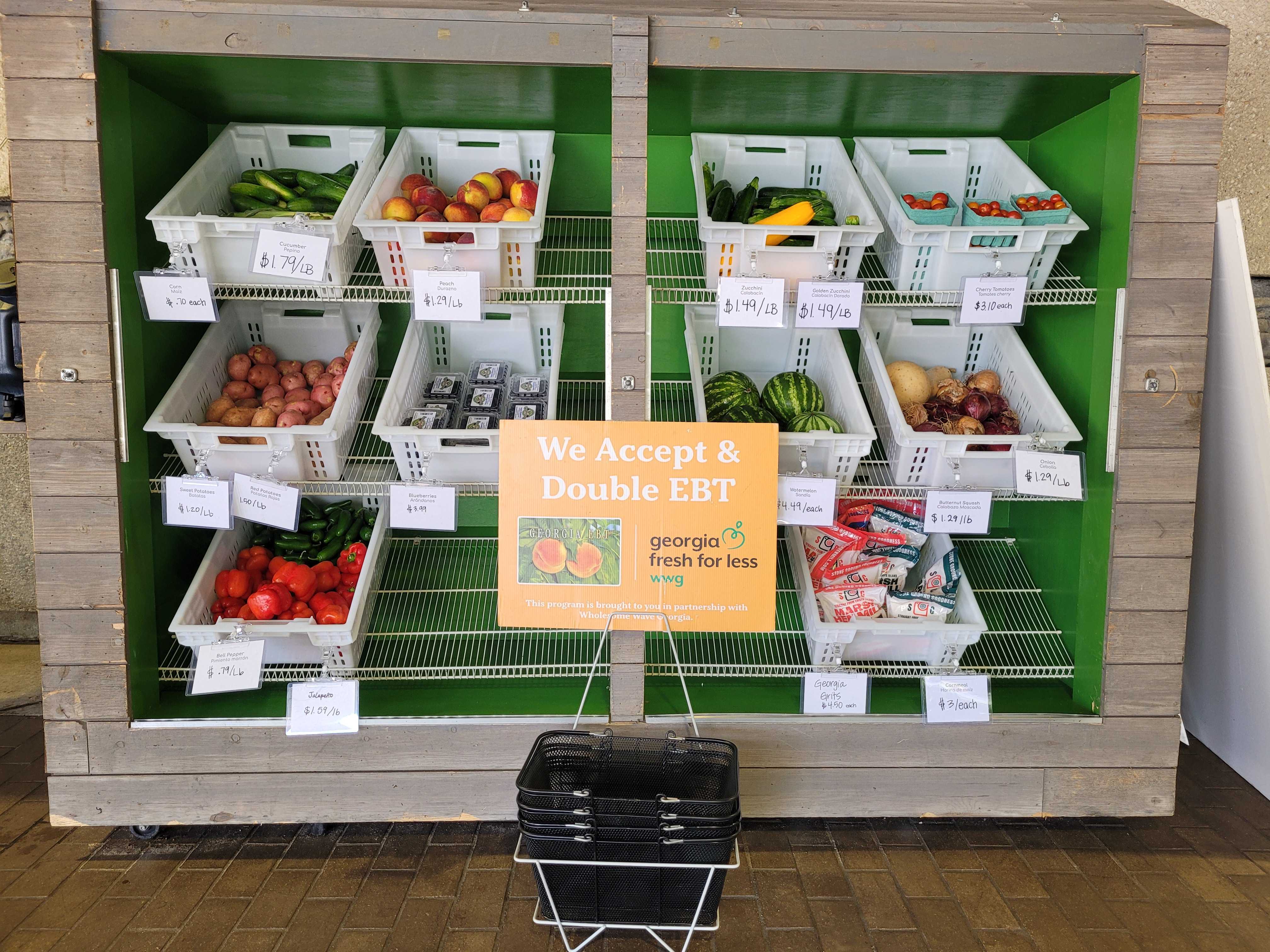Retaaza Rx


The Rx Purpose
Retaaza Rx is our D2C - Direct to Community - program. Retaaza Rx forges connections between farmers and community members. Our solutions assist hungry neighbors by creating a pipeline of fresh, healthy foods straight from the farm and into the hands of food-insecure individuals and families.
At the same time it strengthens the economic stability of local farmers and rural communities while preventing food waste on the farms, leading to a more sustainable solution and a healthier planet. We believe impact can be made across multiple stakeholder groups and goals with smart solutions.

Neighborhood Farm Fresh Markets
Thomasville Heights
Various locations. Tuesdays - 1:00pm-5:00pm Thursdays - 2:00pm-6:00pm
City of Refuge
1300 Joseph E. Boone Blvd NW Atlanta, GA 30314 Wednesdays & Fridays - 2:00pm-6:00pm
MARTA Market - College Park
College Park Station Red & Gold Lines Thursdays - 3:00pm-6:00pm
MARTA Market - H.E. Holmes
Hamilton E. Holmes Station Blue Line Fridays - 3:00pm-6:00pm
Mobile Markets
We’ve developed a mobile farm stand—essentially a farmers market on wheels—that brings fresh, locally sourced produce directly to communities and events across Georgia.
Designed to bridge the gap for individuals facing food access challenges, transportation barriers, or mobility limitations, this innovative tool expands buying opportunities and ensures that more neighbors can enjoy healthy, affordable food right where they are.


Pop-Up Markets
These are stand alone markets with multiple options for Retaaza support from total operational management to assistance with local procurement. We can set up at a location of your choosing and operate with flexible merchandising solutions.
We offer financial tools at all of our markets including the acceptance
of SNAP/EBT, Wholesome Wave Georgia's Fresh For Less Program, and other discounts.
Produce Prescription & Nutrition Boxes
Retaaza’s Produce Prescription and Nutrition Boxes are thoughtfully curated, wholesome, and nutrient-dense assortments of fresh, locally grown fruits and vegetables. These mixed produce boxes may also include additional essential items such as proteins, eggs, and dairy products to support well-rounded, healthy meals.
We collaborate with trusted community partners across the state of Georgia to ensure these boxes reach individuals and families in need, helping to address food insecurity and promote better health through access to nutritious, locally sourced food.

MARTA Markets
At Retaaza, we believe that access to healthy, local food is a right — not a privilege. That’s why we’ve partnered with MARTA, Atlanta’s regional transit system, to bring fresh, affordable, Georgia-grown produce directly to six stations located in historically underserved neighborhoods.
Transit stations are already central to people’s daily routines — and we see them as powerful opportunities for connection and community care. By showing up where people already are, we’re not just selling produce — we’re creating space for dignity, conversation, and access.
We believe these stations can — and should — be community hubs, where resources and relationships grow alongside fresh food. And through MARTA Markets, we’re proud to be helping bring that vision to life. Our Market Operators do more than sell produce. They engage, educate, and empower. They share recipes, talk about the origins of the food, and connect people to valuable local resources. As one rider put it, discovering the market was “an unexpected blessing.”

MACHN
The purpose of the MACHN (Metro Atlanta Coalition for Healthy Neighborhoods) is to collectively combine resources and health and wellness change agents across metro Atlanta to impact the whole person. This approach focuses on restoring health, promoting resilience, and preventing diseases across a lifespan.
In metro Atlanta, life expectancy varies considerably by neighborhood. In 2020, the average life expectancy in Georgia was 75.6 years. The life expectancy of a person living in the zip code 30315 in Lakewood Heights can be 11 years less than someone living just 12 miles away in the zip code 30309 in Midtown Atlanta. This data reflects the direct correlation of how social support, financial resources, education, employment, and stable housing – all classified as health disparities - directly impact Atlantans’ ability to access adequate health care, engage in healthy behaviors, and live in a healthy environment. These disparities are not addressed in traditional clinical and preventive health care, but they have a large influence on health.

.jpg)





.jpeg)





.png)









